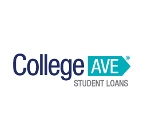How Do I Advise My Undocumented Students Now?, 9:45 - 10:45 a.m.
By Allie Bidwell, NASFAA Senior Reporter
Many financial aid administrators come across situations in which they will have to advise undocumented students, or those in the Deferred Action for Childhood Arrivals (DACA) program. But in the current political climate, the future of the program is uncertain, and learning how to advise these students becomes more complicated.
During a Monday morning session, managing attorney/owner at Adams Immigration Law, LLC, in Carmel, Indiana, walked through the basics of immigration law, what situations financial aid professionals might encounter with their students, why students may face challenges obtaining legal status, and how best to help them navigate paying for college.
In many cases, due to current immigration law and a complex web of requirements, many undocumented students living in the United States cannot obtain legal status, and cannot change their current status. For example, if someone has lived in the country unlawfully for more than 180 days and leaves the United States, that person cannot return for three years. In some other situations, that becomes a 10-year ban.
“I have to tell people all the time, ‘I’m sorry, there’s nothing I can do for you,’” Adams said. “Most of the time people want to become legal. They want every opportunity to work lawfully in the United States, but they can’t because there’s no option, there’s no path.”
This is a big issue for undocumented immigrants, Adams said, because “they can’t stay and they can’t go. They can’t fix it here, they can’t fix it there.”
And when individuals are able to go through the proper paths to legal status, quotas put in place for different types of visas or permanent residency can cause a great backlog that in some cases lasts decades.
Adams said it’s also important to distinguish between students in the DACA program, and students who are undocumented. Being enrolled in DACA makes those students legally present in the country, but does not give them legal status. Additionally, some states offer in-state tuition to DACA or undocumented students, while others limit that to DACA students. Additionally, some states offer state financial aid to DACA students. At the federal level, no undocumented or DACA students are eligible for federal student aid.
Outside of state and federal aid, institutions can support undocumented and DACA students by pointing them toward private and foundation scholarships, school scholarships, payment plans, alternatives to four-year degrees, and in some cases private loans.
Publication Date: 6/25/2018













You must be logged in to comment on this page.